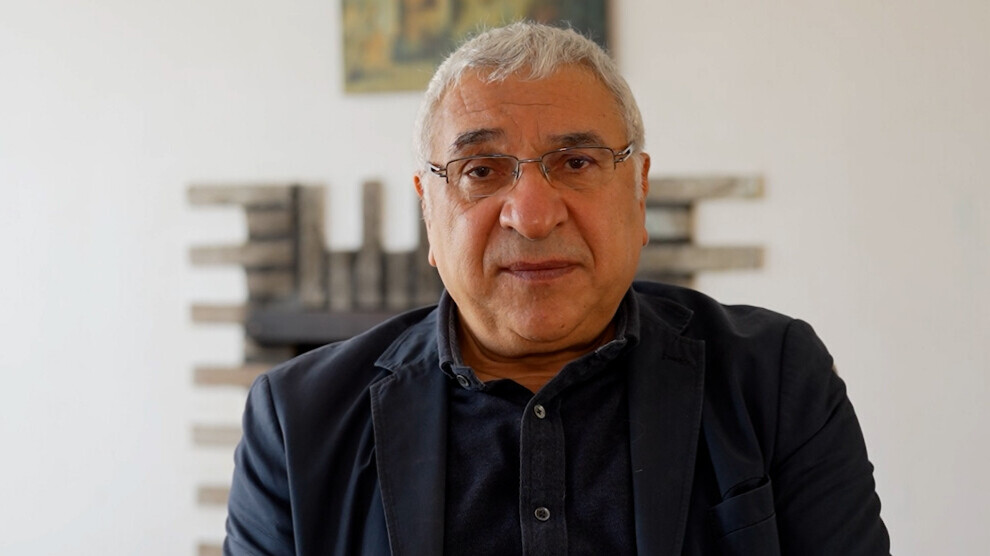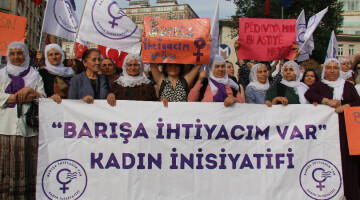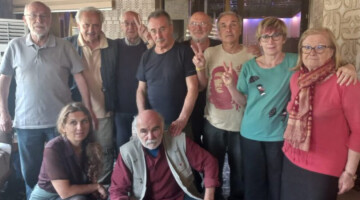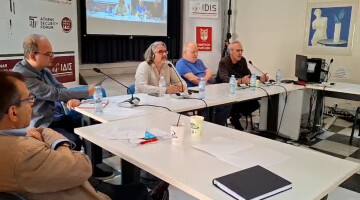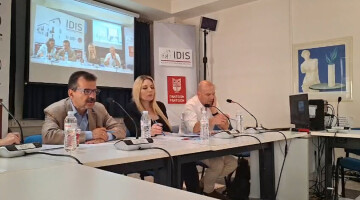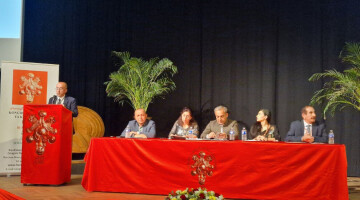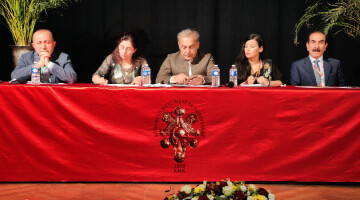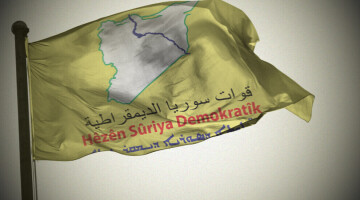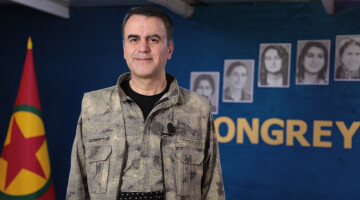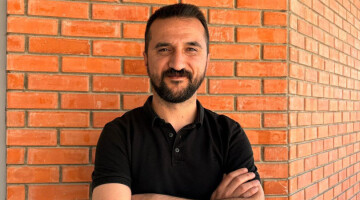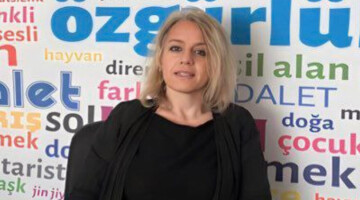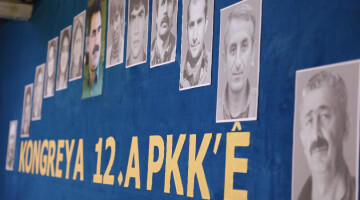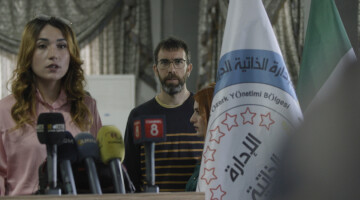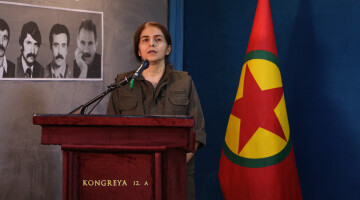One of the most important points of the resistance against the fascist regime, which began in the prisons after the military coup of 12 September 1980, was the great hunger strike of 14 July 1982. The 65-day death fast was led by Mehmet Hayri Durmuş, Kemal Pir, Akif Yılmaz and Ali Çiçek. Fuat Kav, who was involved in the resistance group, survived. He lives in exile in Europe and spoke to ANF about those years and that experience.
The military coup was intended to crash the revolutionary struggle
Fuat Kav says that the aim of the military coup was to crash the developing socialist and Kurdish national liberation struggle. “The military coup brought a dark period in Kurdistan. All associations and parties were dissolved, towns and villages were attacked, people were massacred on the streets and women, men and children were tortured in village squares. This was a systematic practice. To crash the unfolding struggle for freedom, a period of brutal cruelty was inflicted on people."
Torture and psychological warfare
What happened in the prisons was many times more brutal than what happened “outside,” explains Fuat Kav, adding: “The concept and goal of the Turkish state in Diyarbakır [Amed] was to force the PKK to surrender. The PKK prisoners had a counter-concept: 'We will not surrender, we will not betray and we will resist.' Thus they began hunger strikes and death fasts. Since the goals were clear, the negotiations remained fruitless. The goal of the state and army was to end the PKK in prison. To this end, they resort to all sorts of lies, deceptions and tricks: reaching an agreement but not implementing it, starting a dialogue but then breaking it off. This was another form of torture and psychological warfare.
Turkish special team in Amed
The team formed in Diyarbakır was a special team of the Turkish Army. Kemal Yamak was the commander of the 7th Corps, i.e. the person responsible for special warfare in Kurdistan, who fought against the Kurds. This man was a special forces commander who had been trained in the United States. Esat Oktay, on the other hand, had fought against the Greek people in Cyprus. He worked in prison camps. The prosecutors and judges were also military and specially selected individuals. All of this was prepared as part of the plan to crush the PKK. The torture and measures taken in prison were special. The prisoners protested for a long time but could not get any results.”
The Actions of Mazlum Doğan and the “Group of Four”
Fuat Kav further tells about how Mazlum Doğan lit three matches in his cell in Amed prison in 1982 and took his own life on Newroz. He left a message saying "Surrender is treason, resistance brings victory". “Mazlum Doğan was aware of the concept of annihilation and he sacrificed himself to prevent it. Immediately afterwards, the action by the Group of Four began. Ferhat Kurtay, Eşref Anyık, Mahmut Zengin and Necmi Öner sacrificed themselves on 18 May 1982. When they saw that this was not enough to change the harsh, fascist and bloody conditions, another set of measures was needed. That was the death fast, said Kav.
14 July: The Great Death Fast began
Regarding the preparations for the death fast that started on 14 July, Kav said: “During this period of brutality, there were no conditions to discuss such a decision with anyone. Only Hayri Durmuş, Kemal Pir, Mustafa Karasu, Muzaffer Ayata and one or two other friends knew about it. There was only discussion among friends on the 4th floor about starting a death fast against this torture. The decision was made in whispers on the way to and from court, or talked about in secret when the guards weren't there at night. After this decision was made, it was passed on to other friends, wherever possible. For example, there was Akif Yılmaz in the cell where I was kept. He was on his way to court and was told, 'We will start a Death Fast soon, friends who wish to take part can join.' When Akif came and told us, we made our preparations. It was a decision that didn't reach everyone. It was kept among few because if everyone had known about it, it would probably have been exposed too early. Esat Oktay could have prevented it by moving the prisoners.”
"We will defend the PKK in the courtrooms"
The hunger strike became public knowledge through a statement made by Mehmet Hayri Durmuş on 14 July 1982 at a court hearing. Fuat Kav says: "His speech in front of the court was very clear and precise." Durmuş said: “We will defend the PKK in the courtrooms, we will explain the situation of the people in Kurdistan. We will tell the story of Kurdistan. We will explain colonization. The ones who should be sentenced in these courts are not us, but colonialism and the Turkish state.”
Another demand was an end to torture and ill-treatment in prisons. “After Hayri Durmuş, Kemal Pir, Ali Çiçek and a group of friends in the courtroom declared that they had joined the action, on 14 July the Great Death Fast began. When these friends returned to prison, we too heard about the decision. Akif Yılmaz was in the cell I was in. Two days later, we joined the Death Fast.”
Historical hunger strike
Kav says that a group of people who wanted to prevent the concept of torture, persecution, destruction and depersonalization in a dark time used their own bodies as a weapon: "They showed great will. In such an environment, torture, starvation and cruelty are extreme, there are unspeakable practices. Some surrendered and committed treason. In that situation, a handful of people stood up and said, 'We will not surrender, we will not betray.' Only Hayri Durmuş and Kemal Pir and a handful of people around them were able to continue. That's why they went down in history. It also takes a special will to carry out such an action to the end. All kinds of torture continued during the death fast. They put up a great resistance. In this way, they prevented further torture in Diyarbakır prison and defeated the concept of extermination. They wrote their names in golden letters in the history of Kurdistan."
Fuat Kav
Fuat Kav is a political activist, journalist and author. He was born in Urfa in 1959 and has campaigned for the rights of Kurds in Turkey since 1976. After the 1980 military coup, he spent 20 years in Turkish prisons, including eight years in the notorious Diyarbakır prison, the "Hell of Amed". He took part in the resistance and experienced unbelievable forms of cruelty there. His living memory is one of the few sources of the stories lived behind the walls of Turkish prisons. His memoirs were published in the 2011 novel Blue Ring. The book is no longer available since the Neusser Mezopotamien-Verlag was banned by the German Ministry of the Interior. Fuat Kav now lives in exile in Europe.
The female prisoners around PKK co-founder Sakine Cansız also took part in the hunger strike in Amed. As Fuat Kav points out, communication within the prison was limited. Contact between the cells and the women's and men's wards was fought for through hunger strikes. Sakine Cansız reports on the prison resistance from a woman's perspective in the second volume of her three-part biography "My whole life was a struggle". Sakine Cansız was murdered by the Turkish secret service, MIT, in Paris in 2013.

